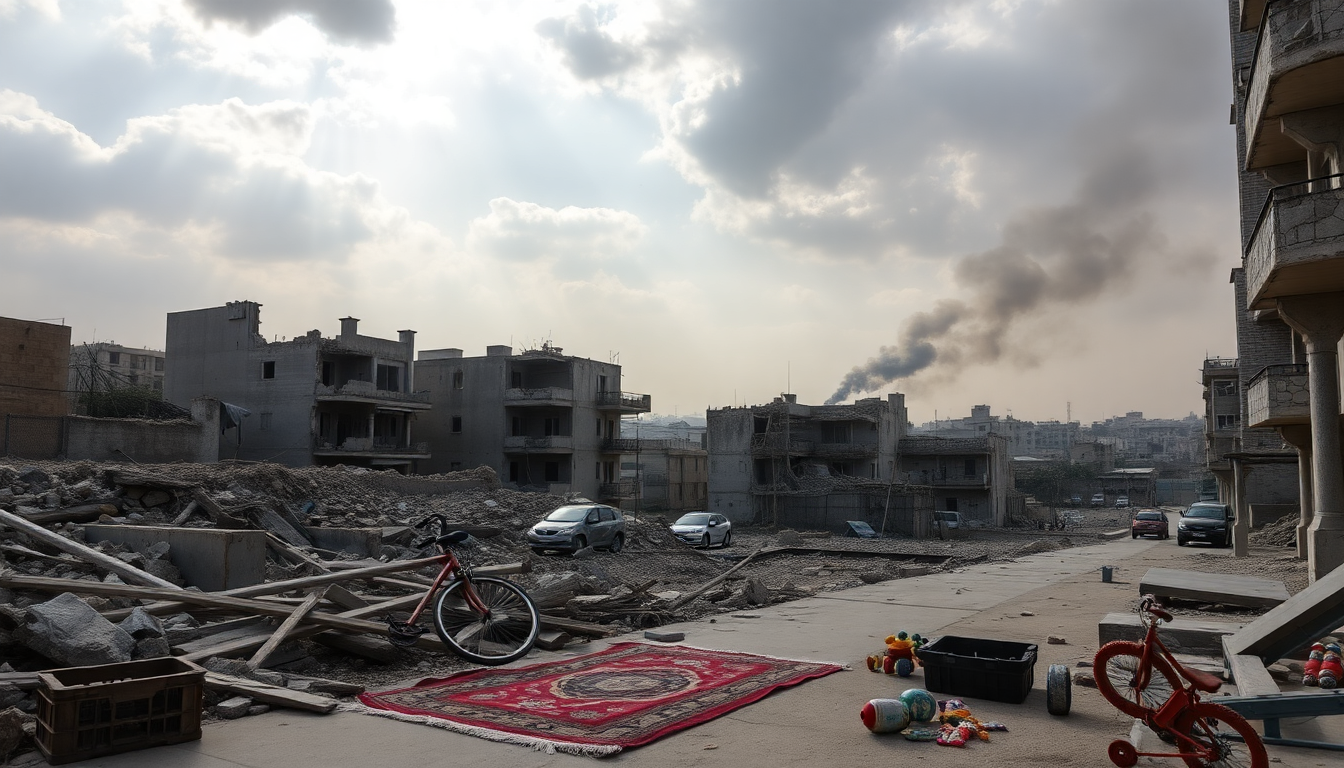Table of Contents
The ongoing conflict in Gaza has reached alarming levels, leading to dire humanitarian consequences for the civilian population. As military operations ramp up, residents of Gaza City are grappling with unprecedented challenges, from forced displacement to food shortages and relentless airstrikes.
In this article, we’ll explore the current state of affairs in Gaza, looking at what it means for the local community and how the international community is responding to this crisis.
The Current Situation in Gaza City
In just a few weeks, the situation in Gaza City has taken a turn for the worse.
Military actions have instilled widespread panic and chaos among residents, who are desperately seeking safety amid continuous bombings. Tragically, reports show that Israeli airstrikes have targeted civilian areas, resulting in numerous casualties, including women and children. Al-Shifa Hospital has become a focal point for medical responses, grappling with multiple fatalities and injuries from these attacks.
As the Israeli military continues its operations, neighborhoods like Zeitoun and Sabra have suffered extensive damage, with a staggering number of buildings reduced to rubble. The destruction has forced many residents to flee their homes, adding to the already overwhelming challenges of displacement.
Medical sources confirm that the human toll is staggering, with at least 59 fatalities reported in a single day due to airstrikes across the region. How much more can these communities endure?
The combined threats of warfare and famine are evident, with residents facing significant food insecurity worsened by Israel’s blockade.
Reports of hunger-related deaths, particularly among infants, highlight the dire humanitarian implications of this ongoing conflict. As conditions deteriorate, the need for humanitarian aid has become critical, yet the entry of essential supplies into Gaza remains heavily restricted. What can be done to break this cycle of suffering?
Humanitarian Aid and International Response
The international response to this crisis has been varied, with calls for increased humanitarian assistance growing louder. Organizations like the United Nations have raised alarms about the unfolding famine, stressing that the aid currently permitted into the region is woefully inadequate to meet the population’s needs. Shockingly, reports indicate that only 15% of the required humanitarian aid has reached those in desperate need, leaving many vulnerable families without access to essential resources. What happens when help doesn’t arrive?
Despite overwhelming evidence of a humanitarian crisis, Israeli officials have disputed claims of famine, calling them misinformation. This denial has sparked outrage among international leaders and humanitarian advocates, who underscore the urgent need for a coordinated response to address the immediate needs of the population. The UK Secretary of State for Foreign Affairs has publicly condemned the lack of sufficient aid, advocating for a robust humanitarian response to prevent further loss of life. How will the world respond?
The complexities of the situation are further complicated by the ongoing military strategy employed by the Israeli government. Recent statements from military leaders warn of the implications of continuing operations without a clear post-conflict plan, raising concerns about the potential for extended military governance in Gaza. What does the future hold for these communities?
The Human Cost of Conflict
The human cost of this ongoing conflict is staggering. With over 63,000 Palestinians reported killed since hostilities began, the ramifications of warfare extend far beyond immediate casualties. Many residents of Gaza City have been displaced multiple times, facing the trauma of conflict and loss. The threat to the well-being of the population is substantial, especially for children, who make up a significant portion of those affected by starvation and violence. What kind of future awaits them?
As families navigate the chaos, the emotional toll of conflict resonates throughout the community. The grief expressed during recent funerals emphasizes the deep sense of loss felt by many, as families mourn loved ones taken by the violence. The anger directed toward governmental responses reflects a broader frustration with the lack of effective solutions to this ongoing crisis. Will the voices of the affected be heard?
In conclusion, the humanitarian crisis in Gaza City demands immediate attention and action. As military operations continue, the international community must recognize the gravity of the situation and provide the necessary support to alleviate the suffering of those caught in the crossfire. The call for humanitarian aid is not just a response to a disaster; it is a demand for accountability and compassion in the face of human suffering. How can we, as global citizens, contribute to a more compassionate response?





